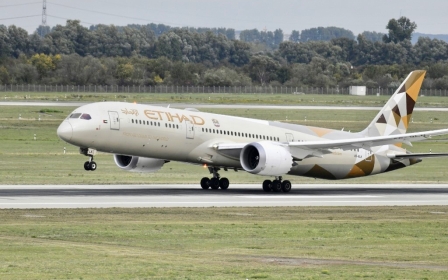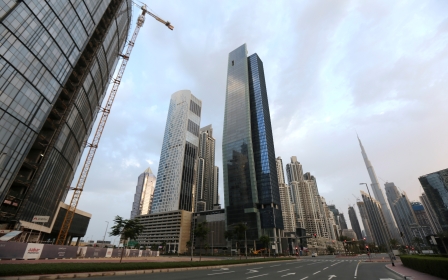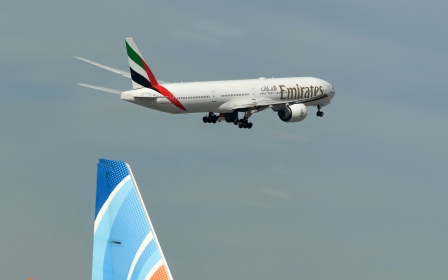Dubai to ease restrictions as UAE coronavirus cases exceed 30,000

Dubai will begin to lift some of its coronavirus restrictions on Wednesday, Crown Prince Sheikh Hamdan bin Mohammed al-Maktoum has said, as the United Arab Emirates' number of coronavirus cases rises past 30,000.
Starting on Wednesday, there will be no restrictions on movement or business operations between 6 am and 11 pm, local time, the Dubai Media office said on Monday in a news release posted to Twitter.
New MEE newsletter: Jerusalem Dispatch
Sign up to get the latest insights and analysis on Israel-Palestine, alongside Turkey Unpacked and other MEE newsletters
Some retail and wholesale businesses will be allowed to reopen after sterilisation, as long as social distancing measures are respected, the media office said.
Cinemas, indoor gyms, and child education and treatment centres will also be allowed to reopen.
Monday's announcement reverses a measure taken last week by the UAE to extend its nationwide curfew by two hours, after reporting an increase in daily cases of the coronavirus, Reuters reported.
The UAE documented 822 new cases on Monday, taking the cumulative total to 30,307, with 248 deaths. Two weeks ago, the country had reported less than 20,000 cases.
Monday's statement added that Dubai's airport will also begin to receive returning residents and transit travellers as of Wednesday.
The UAE, which had suspended entry of non-Emirati residents on 19 March, said last week it would soon start allowing in those with valid residencies stranded abroad whose families are in the UAE. Those residents with relatives in the UAE could start returning as of 1 June.
The country halted regular passenger flights and closed most public venues to combat the disease, but like other Gulf Arab states, it saw the virus spread among low-income migrant workers living in overcrowded quarters.
Economic downturn
The city of Dubai, the capital of its emirate and the UAE's most populous metropolis, is known as the Middle East's hub for tourism, trade and business - all industries that have been hit the hardest by the Covid-19 crisis.
While Dubai allowed malls, dine-in restaurants and cafes to reopen at a limited capacity during the Muslim holy month of Ramadan that ended on 24 May, its economy has still struggled to stay afloat during the crisis.
Dubai's chamber of commerce last week warned that 70 percent of the city's businesses may go under in the next six months because of financial problems brought about by the coronavirus pandemic.
The chamber surveyed more than 1,200 CEOs between 16 and 22 April, with more than two-thirds of those interviewed reporting that they saw a "moderate to high-risk" chance of their businesses going under in the next six months amid restrictions and lockdowns.
It warned that the impact of the Covid-19 crisis on the world economy "is projected to be greater than the 2008-09 financial crisis".
To combat the economic effects of the crisis, Dubai announced a $408m spending package in March. Meanwhile, Abu Dhabi unveiled a $27bn stimulus plan.
Oil-rich Abu Dhabi earlier this month said it was prepared to prop up Dubai's economy by merging assets, despite plummeting oil prices.
In mid-May, the UAE said it was planning to review the structure and size of its government to make it "more agile and flexible".
"We may merge ministries and alter bodies. We will make changes," Sheikh Mohammed bin Rashid al-Maktoum, the ruler of Dubai and vice president of the UAE, said after three days of virtual meetings on the country's post-coronavirus strategy.
Middle East Eye delivers independent and unrivalled coverage and analysis of the Middle East, North Africa and beyond. To learn more about republishing this content and the associated fees, please fill out this form. More about MEE can be found here.






